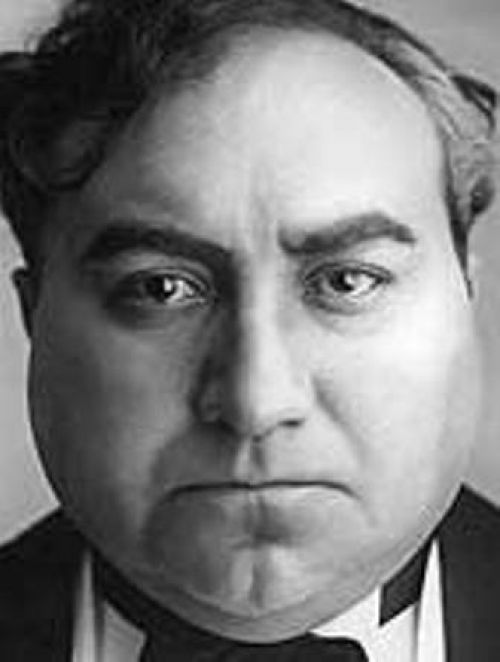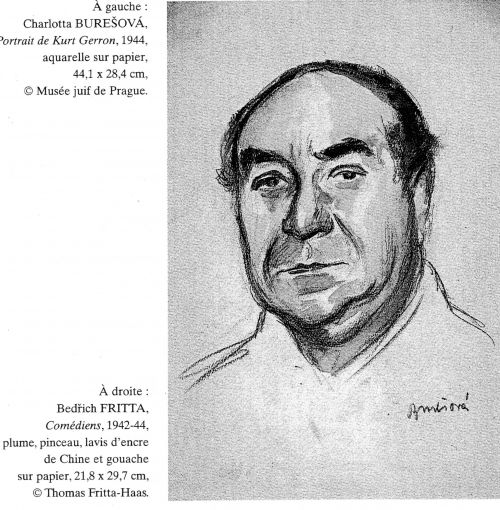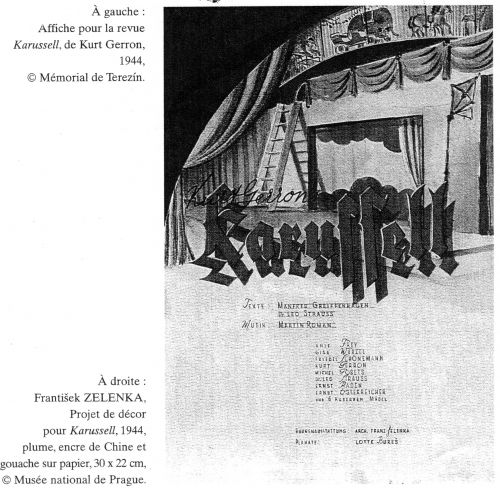Kurt Gerron

Kurt Gerron (Private Archive)
Kurt Gerron, was born Kurt Gerson, to Jewish parents on May 11, 1897, in Berlin.
After school Kurt Gerron fought in the First World War and he was wounded several times. During his service he studied medicine, and he obtained a degree in medicine. However, he did not pursue a career in medicine, and he became an actor on the stage during 1920. He appeared in such films as 'The Blue Angel' opposite Marlene Dietrich, and on stage he played the role of Brown - the London Chief of Police, in the premiere production of the 'Die Dreigroschenoper in Berlin during 1928.
Gerron was offered the opportunity of a trip to Hollywood, but refused and stayed behind in Germany. Although he later left Germany traveling first to France in 1933 and later to the Netherlands. He directed various films in France and Holland during this time. After the German occupation of the Netherlands, both Kurt and his wife Olga Gerson-Meyer, who resided at Frans van Mierisstrat 78, bovenhuis, Amsterdam, were interned at Westerbork Transit Camp in mid-1943. They were sent to Theresienstadt, the paradise ghetto near Prague on February 25, 1944.
At Theresienstadt he ran a cabaret called 'Karusell' to entertain the ghetto residents. He was subsequently forced by the Nazis to make a propaganda film showing how well the Jews were treated at Theresienstadt. The film was called 'Der Fuhrer schenkt den Juden eine Stadt' (The Fuhrer Gives a City to the Jews). Gerron submitted a script to Commandant Karl Rahm. The connecting theme, the leitmotif was water - the rivers, bathtubs, faucets, showers, irrigation ditches - Berlin like the theme and approval was given to start filming.

Kurt Gerron Portrait (Jewish Museum Prague)

Karussell Poster (Terezin Memorial)
Filming commenced on August 16, 1944, and was completed on September 11, 1944. The film was a grotesque lie, and as soon as filming stopped the ghetto slipped back to its cruel regime of starvation and transports to Auschwitz. After completion of the film both Kurt Gerron and his wife Olga were deported to Auschwitz Concentration Camp. They were both murdered in the gas chambers of Birkenau on October 30, 1944.
Sources
Bundesarchiv
www. Filmportal de
Sir Martin Gilbert, Holocaust Journey, Weidenfeld and Nicolson, London 1997
Photograph - Private Archive
Frank Bright provided the two drawings - Jewish Museum Prague and Terezin Memorial
© Holocaust Historical Society May 12, 2022

